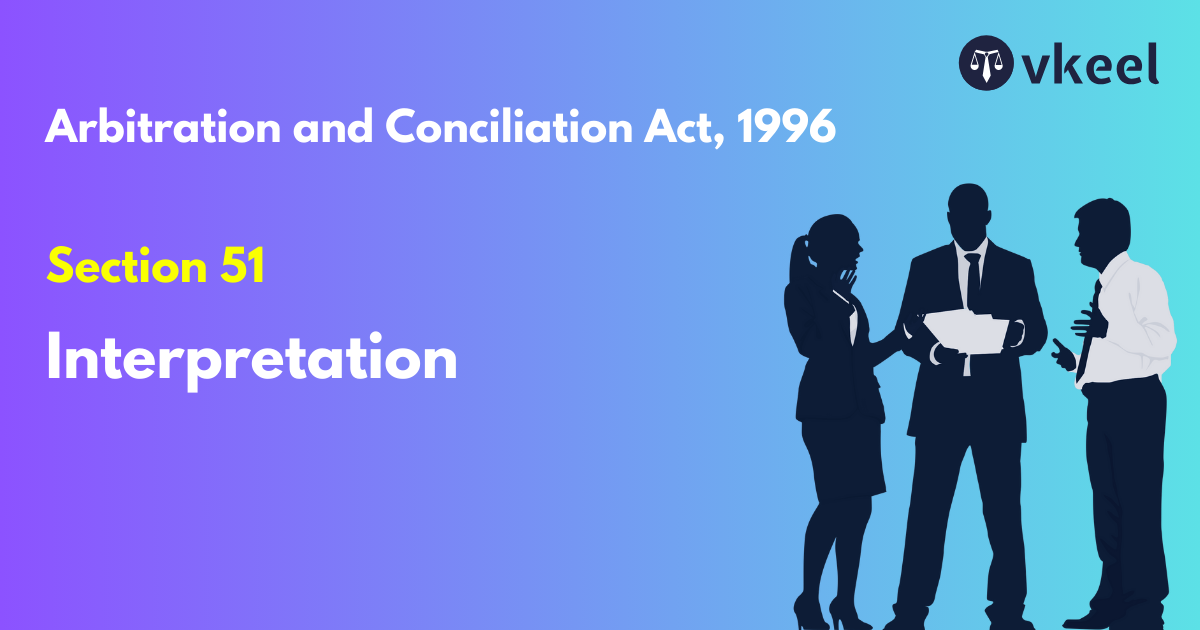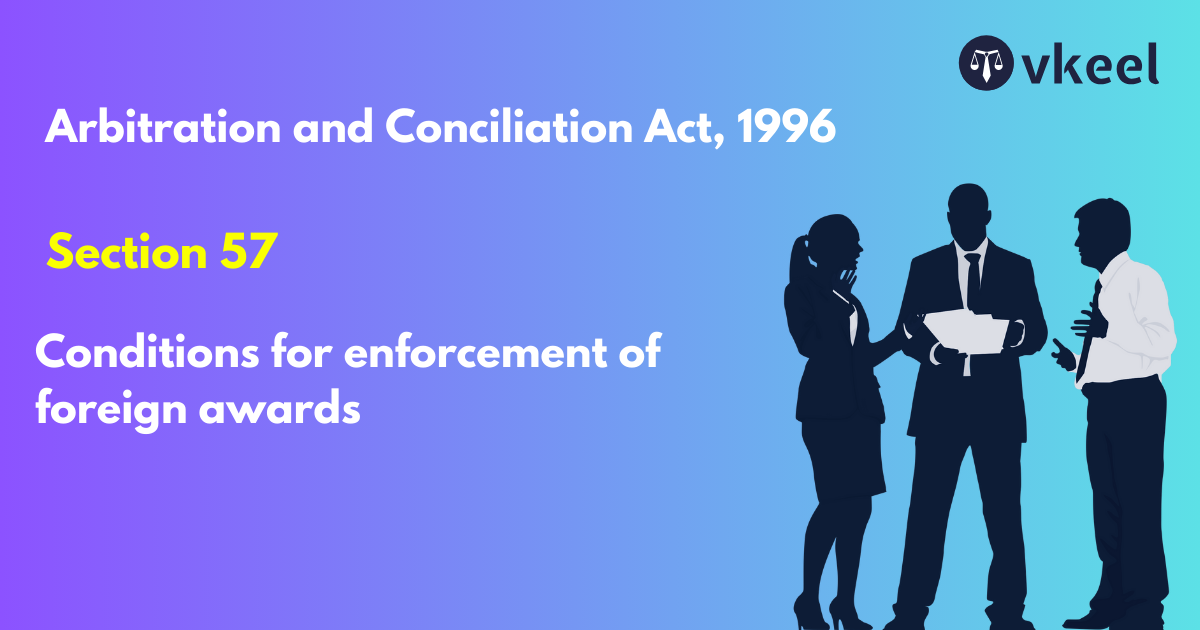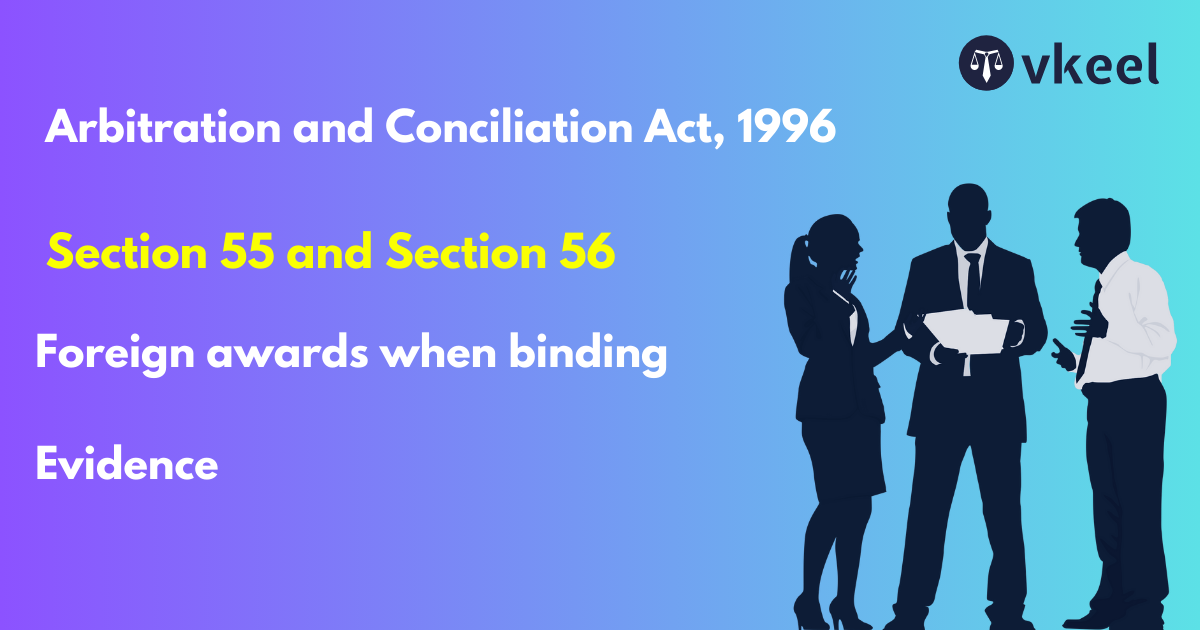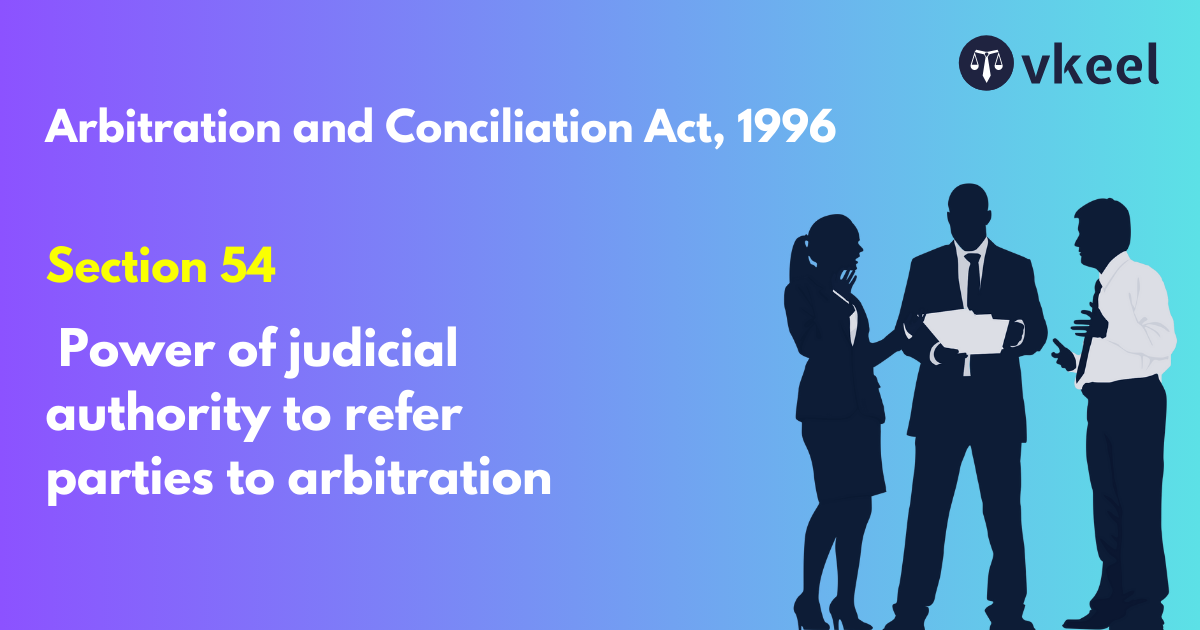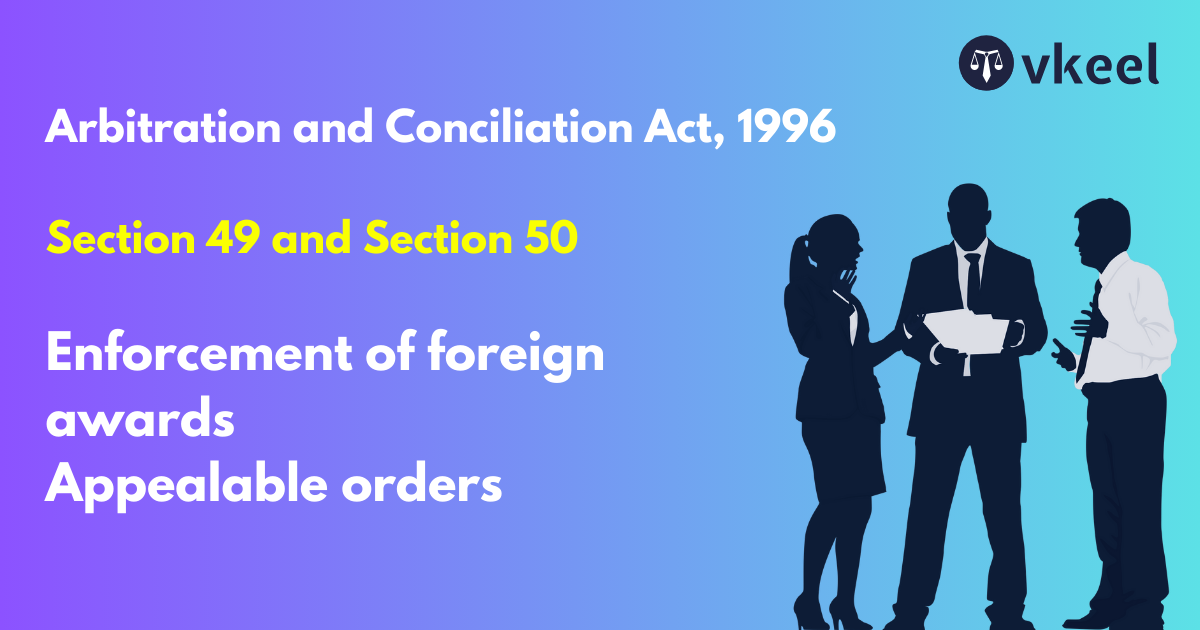Section 53: Arbitration and Conciliation Act, 1996
By Nivedita Dhiman
Table of Contents
Introduction of Section 53
Section 53 ensures that while foreign arbitral awards are generally given due weight, they are not enforced blindly and are subject to scrutiny based on fairness and legality under Indian law. The intention is to balance India’s commitment to international arbitration with the protection of its own legal system and public order.
Section 53 of arbitration and conciliation act
Interpretation
In this Chapter “foreign award” means an arbitral award on differences relating to matters considered as commercial under the law in force in India made after the 28th day of July,
1924,—
(a) in pursuance of an agreement for arbitration to which the Protocol set forth in the Second
Schedule applies, and
(b) between persons of whom one is subject to the jurisdiction of some one of such Powers as the
Central Government, being satisfied that reciprocal provisions have been made, may, by notification
in the Official Gazette, declare to be parties to the Convention set forth in the Third Schedule, and of
whom the other is subject to the jurisdiction of some other of the Powers aforesaid, and
(c) in one of such territories as the Central Government, being satisfied that reciprocal provisions
have been made, may, by like notification, declare to be territories to which the said Convention
applies,
and for the purposes of this Chapter an award shall not be deemed to be final if any proceedings for the purpose of contesting the validity of the award are pending in the country in which it was made.
Landmark Judgements of Section 53
Lochman Das Sat Lal vs Parmeshri Dass, 1958
Where after partition, the arbitrator appointed under an agreement which was concluded between the parties when India was undivided, gave his award and signed it at Karachi, the award is a foreign award.
Kamini Engg. Corp Ltd vs Societe De Traction Et D’Elecetricite Societe Anonyme, 1965
Where the work undertaken by the defendants was of a professional character and did not involve any business or commerce, such a contract would be in the nature of a contract for technical assistance because the contract did not involve the defendants into any business of the plaintiff’s , nor it was in any sense participation in profits between parties. The fact that the remuneration was to be paid as “fee” also speaks of the parties not entering into any business and thus, the parties scrupulously kept themselves out of any commercial relationships.
Conclusion
The above-mentioned section displays an approach to international arbitration that aims to uphold the integrity of India’s legal and judicial framework while maintaining India’s obligations under international treaties. It also provides a safety net against enforcing awards that may be unjust, contrary to Indian public policy, or violate fundamental legal principles.
Disclaimer:
The information provided in the article is for general informational purposes only, and is not intended to constitute legal advice or to be relied upon as a substitute for legal advice. Furthermore, any information contained in the article is not guaranteed to be current, complete or accurate. If you require legal advice or representation, you should contact an attorney or law firm directly. We are not responsible for any damages resulting from any reliance on the content of this website.

